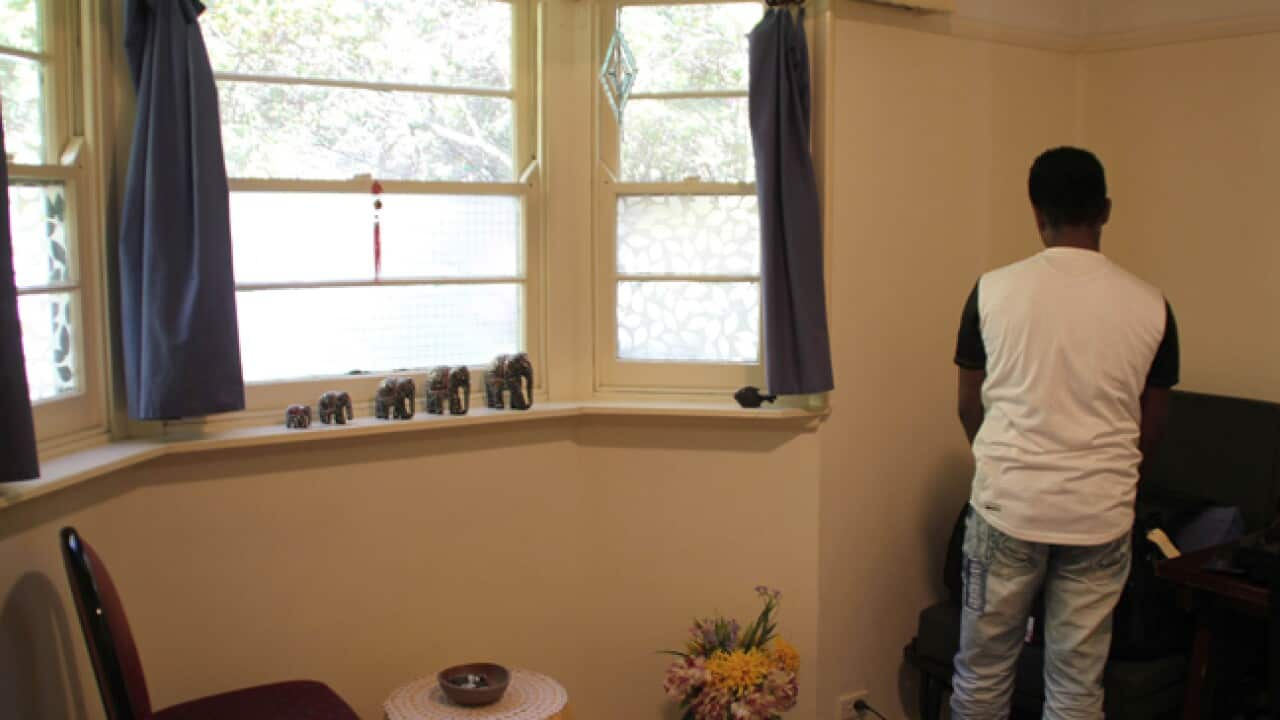Transcript from SBS World News Australia Radio.
The pilot will enable community groups to sponsor people in humanitarian need to come to Australia.
But the cost of the visa, which is to be paid by the sponsor, is proving unpopular.
And there is frustration that the up to 500 people to be brought to Australia under the program will not be in addition to Australia's current refugee quota.
LISTEN: Phillippa Carisbrooke reports.
[sbspodcast id="247075"]
The private sponsorship scheme is expected to come into effect early next year,
It will enable community groups and charities to apply to sponsor people in humanitarian need to come and live in Australia.
The Refugee Council of Australia has welcomed the concept, but is disappointed at the size of the visa application charge to be paid by the sponsor.
Chief Executive Paul Power says the $20,000 to $30,000 charge is four to five time higher than his organisation had envisaged, and will not be affordable for many community groups.
"For instance if their goal over a couple of years was to resettle four families they would be looking at paying 80-thousand to 120-thousand dollars in visa application charges. And on top of that would have all the other charges associated with a resettlement. The airfares the practical assistance to the families in the early stage and a considerable amount of volunteer effort. Given that this would be being conducted by volunteer organisations and the money would be donated money and that charge is really a bit too steep. But, I think there are groups that are so desperate to resettle people that they would go to any extend to be able to raise funds to resettle people who are close to them who are in desperate need."
Mr Power says when the Refugee Council consulted with community organisations about the proposed pilot, some expressed concern that it might be simply a cost-cutting measure by the government.
Immigration Minister Chris Bowen says such concerns have not been raised with him.
"In the consultation that we have done, and which I have done, directly with service providers, with respect not through the Refugee Council, that has not been raised at all. In all the consultations I have done shows people are very keen to be involved in this. They recognise this is a good opportunity to help their communities and they will be doing so."
Mr Bowen says charging sponsors $20,000 to $30,000 per application will keep the cost to the taxpayer to a minimum.
"We'll still be providing a range of services to people. People will still have access to Medicare, still have access to certain welfare provisions. And there will be all the processing costs. We will be looking to the service provider to provide accommodation and key settlement assistance and help them into employment etc. So this is about making sure that the Australia taxpayer is not disadvantaged by the implementation of this scheme."
AMES helps new and recently arrived refugees settle in Victoria.
It fears the private sponsorship program could give rise to a two-tier system.
Chief Executive Cath Scarth says there is a danger smaller, less well established community groups could find themselves excluded from the program due to lack of resources.
"There are clearly those longer established refugee communities who have been in Australia longer, clearly have been working, perhaps are here in larger numbers and so can support something like this. So they have if you like the financial capacity, not just in terms of the 20 to 30-thousand, but also the capacity in terms of providing housing and providing other support but refugees. Where as you look at groups that may have been arriving more recently in the last five-years or so and may not be in that position."
The announcement the 500 refugees resettled through the pilot will not be in addition to the 20,000 vulnerable and displaced people resettled though the government's expanded humanitarian intake program in 2012-13, has come as a disappointment to the National Council of the St Vincent de Paul Society.
Chief Executive Dr John Falzon says it removes a major incentive for private sponsorship.
"The bottom line is that the incentive to be involved in this scheme has been somewhat dissipated by the fact these are not additional places. One will not be surprised if the response to this pilot is somewhat cynical in the sense that the government may well be perceived as saying well if you want these people to have an opportunity to come here that badly, you the community sector will need to foot to bill. You know it's a sad day when charity becomes the default position for the provision of services and goods that should properly be the responsibility of government."
Minister Bowen says he has been contacted by a number of community groups and charities over the years wishing to sponsor refugees, and that the pilot will now allow them to do so.
But asked if the St Vincent de Paul Society would take part in the pilot, Doctor Falzon said the costs involved were prohibitive.
He says the charity is already under financial strain catering for the needs of asylum seekers living in the community while they await decisions on their refugee applications.
"I'd be loathe to say never, because I think that would be a rash response. But I will say that the feedback that I am getting from many sections of my organisation is that in some parts of Australia there has been a great deal of pressure placed on our members to be able to meet the needs of people that the government has basically abandoned in the community without the kind of essential material and social support they need while awaiting a determination on their status."

